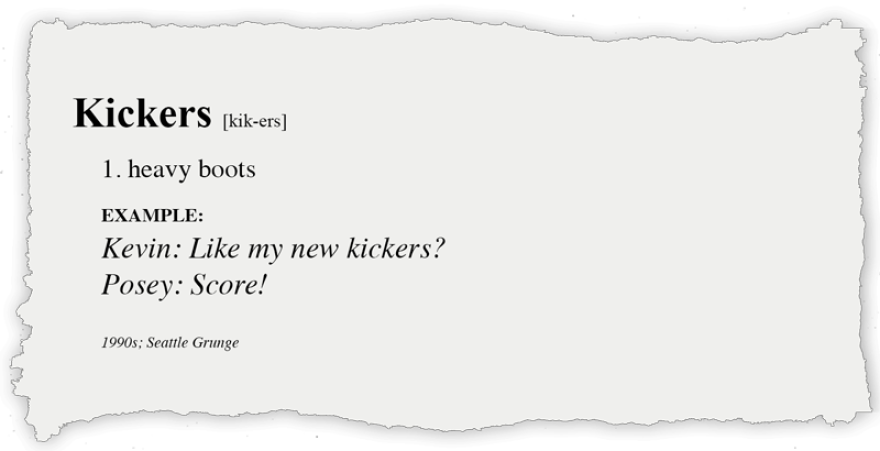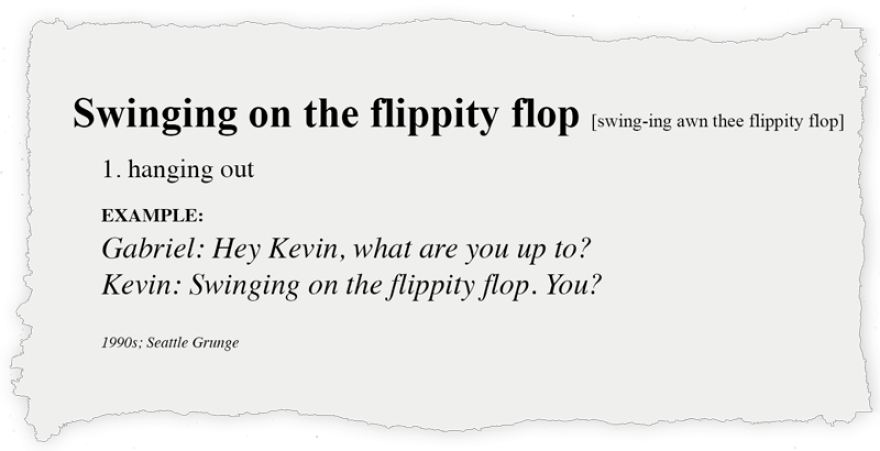This story originally aired on April 20, 2019.
Back in the early 1990s, all eyes were on Seattle. The local music scene was exploding. The young, flannel-wearing creatives of the Northwest had given birth to a new genre of music called grunge.
Rolling Stone magazine declared Seattle the new Liverpool, referring to the city that launched The Beatles. Sub Pop Records was in the thick of everything. This small Seattle label was the launch pad for bands such as Nirvana and Soundgarden.
Sub Pop was fielding phone calls from all over the world from journalists and talk show producers who wanted to know as much as possible about these artists and the place that help create their music.
Megan Jasper was in her early 20s when her love of music brought her from the East Coast to Seattle. She landed a job working the front desk at Sub Pop Records.
“I would describe the office as this incredibly creative, weird space where anyone who may have been a misfit in any way felt probably welcomed,” Jasper recalled.
Even though the music scene was boiling over, Sub Pop’s finances were a mess. The company ended up laying off Jasper and several of her coworkers in order to keep things afloat. Jasper left on good terms and kept in touch with her old bosses.
One day, she got a call from Jonathan Poneman, one of Sup Pop’s founders. Poneman had received a phone call from The New York Times. They wanted to do a culture piece on grunge. Poneman punted the call to Jasper. She said that Poneman knew she was a prankster, a self-described wiseass, who would have fun with the reporter.

Jasper did the interview from her basement apartment on Queen Anne. She was on her third or fourth pot of coffee. Her mind was buzzing.
On the other end of the line, the Times reporter wanted Jasper to be a guide, someone to help the readers of this reputable paper feel as close to the flames of this new music scene as possible. He wanted Jasper to tell him how people in the grunge scene talked. What was their secret language?
“And I thought 'really?'” Jasper said. “I thought 'sure,' but there really wasn’t a secret language. It seemed like a fairly bizarre request. So, I just thought, 'sure. You want a lexicon? I will totally give you a lexicon.'”
With her mind buzzing with caffeine, Jasper started jotting down the names for clothing and her on-the-spot grunge translation.

Platforms shoes became plats. On the fly, she told the reporter that the young and hip in Seattle called sweaters, fuzz and that staying home on a Friday night was also known as being bound and hagged.
“Who would ever have a word for that, seriously?” Jasper recalled thinking, as the interview went on and her answers got weirder.
When the call ended, Jasper was convinced the reporter would realize everything he had just typed was a prank and throw everything out.
A few weeks passed. Jasper forgot about the call. Then early one morning, the phone rang and it was her mom calling from Massachusetts. Her mom read The New York Times every day. Her voice sounded a little alarmed.
“Jesus Christ, have you looked at the paper today?” her mom asked.
Jasper said she hadn’t seen the paper. Her mother told her grab a copy from the store and call her back.

Jasper picked up a paper, thumbed through the sections and saw her name in print as the source who provided a new “lexicon of grunge speak coming to a high school or mall near you.”
Jasper was mortified. She felt bad for lying and she was worried about what her friends in the music scene would think. Would they be offended? Would they be confused?
It turned out that everyone here, in the Northwest, got the joke.
Shortly thereafter, Jasper went to a show at The Crocodile and saw that people had pinned the list of words to their shirts.
“It gave people a good laugh,” Jasper said. “And I think people were grateful for that because there were wonderful moments. There were also many eyeroll moments back then because everything was changing so fast and because you couldn’t do anything without people studying it.”

A few more months ticked by and a reporter for The Baffler, a left-wing magazine, got in touch with Jasper. The reporter wanted to confirm that the lexicon of grunge was a hoax. Jasper said, on the record, that of course it was.
This news eventually filtered up to The New York Times. An editor from the Styles Section called Jasper. Jasper said the voice on the other end was furious. But Jasper said the editor also was trying to play it cool saying the paper knew the whole time that the strange vocabulary list was really tongue and cheek.

Sometimes, fiction becomes fact. This started to happen with Jasper’s lexicon of grunge. One of the words, lamestain, which in Jasper’s caffeinated imagination means someone who is “uncool,” started showing up on T-shirts that people were paying money for.
The Seattle band, Mudhoney, intentionally dropped words and phrases from the list into interviews. Another, harsh realm, Jasper's phrase for “a bummer,” became the title of a short-lived science fiction television show.
“In those moments, like, learning that there was a TV show called 'Harsh Realm,' it would make me smile, but I never watched the show,” Jasper said.
Jasper eventually went back to work at Sub Pop. Today she’s the CEO. She fully supports pranks in the office. Once, a coworker posted an ad on Craigslist, promising free Chihuahua puppies and listed the point of contact as Jasper, who thought it was hilarious.
Back to that angry phone call from The New York Times Styles editor. After all of the yelling was done, but before the line went dead between the East and West Coast, the editor asked Jasper one last question: “Do you know where can I get one of those laimstain T-shirts?”







